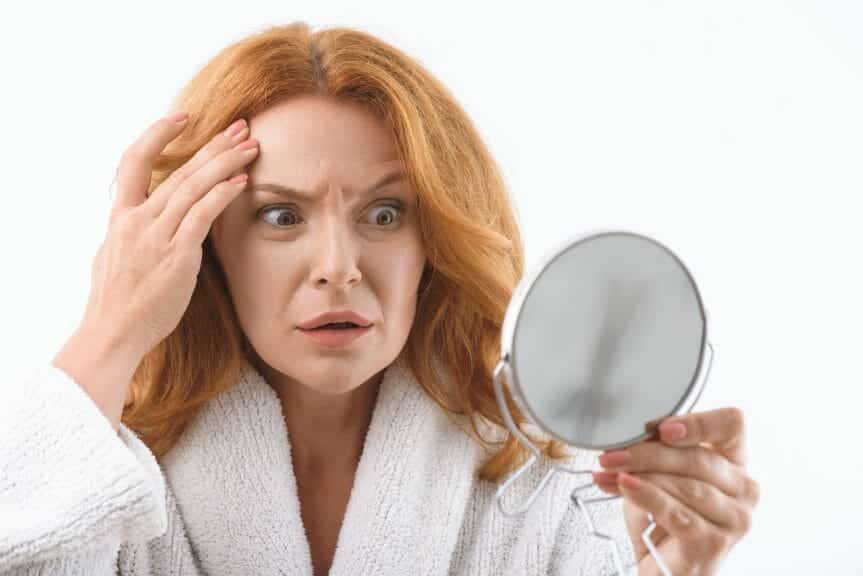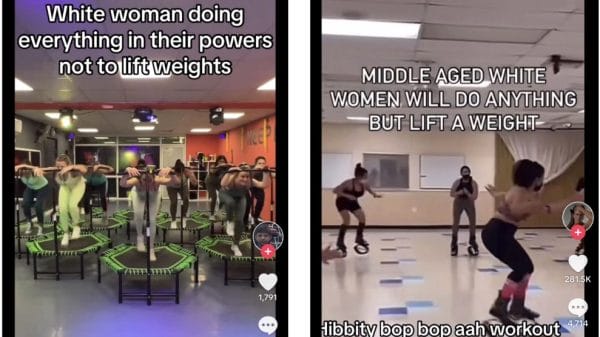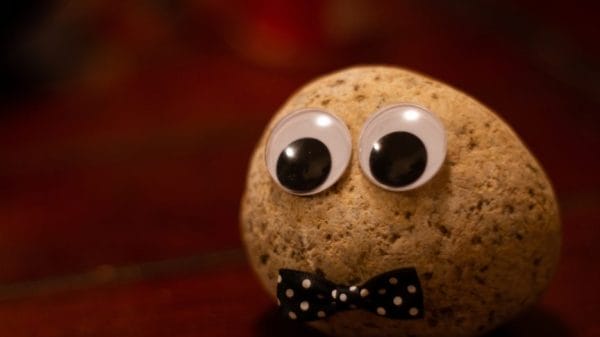“I don’t like it. I don’t like it at all,” said Kylie Jenner, one of the many people to try out TikTok’s latest “age filter,” in a video she posted on her account.
Within the past two weeks, videos of people testing out this filter have bombarded my “For You” page. The filter shows users what they will purportedly look like when they are cerca age 70. Many videos I’ve come across appear mostly comical, with users self-depreciatingly poking fun at their appearances. However, several reactions reveal people’s extreme trepidation around facial aging.
Despite efforts from detractors of ageism to dismantle the stigma around aging, the ardent belief remains that facial aging is an adverse byproduct of getting older – one that warrants grimaces and appalled gasps from the mere thought of it. The collective reaction to the filter reinforces an antiquated and toxic beauty ideal that does not serve anyone’s interests, especially those of women. By triggering young people to hyper-fixate on skin aging prevention, it feeds into the patriarchal belief that there is a singular “right” way to age that demands excessive money and unbridled commitment.

The Contentious Debate About What “Aging Well” Entails
There are stringent criteria for what “graceful” aging looks like in contemporary society.
In general, “we live in a society that worships youth”, said Ashton Applewhite, an author and spokesperson in the movement to combat ageism, on the We Can Do Hard Things podcast.
Consequently, natural attributes of facial aging such as crow’s feet, marionette lines, and eye bags, are largely frowned upon.
However, the aging guidelines are more complex than that due to their gendered biases. Women often face more pressure than men to preserve a youthful complexion and suffer greater societal scrutiny if they do not meet that benchmark.
For example, the Internet and media have widely commended 54-year-old actor Paul Rudd for “staying youthful” and “not aging” throughout his career. On the other hand, 34-year-old actress Nina Dobrev has increasingly endured criticism online for “aging badly.” In reality, Dobrev simply does not look exactly as she did when she was 20 and first gained success. However, neither does Rudd.
As a woman, because Dobrev showed any traces of aging and evolvement from her appearance when she achieved widespread fame, she is ultimately publicly denounced for “aging badly.” The sexist element between men’s and women’s contradicting “healthy aging” rubrics divulges the hollow nature and ambiguity of much of the online criticism.
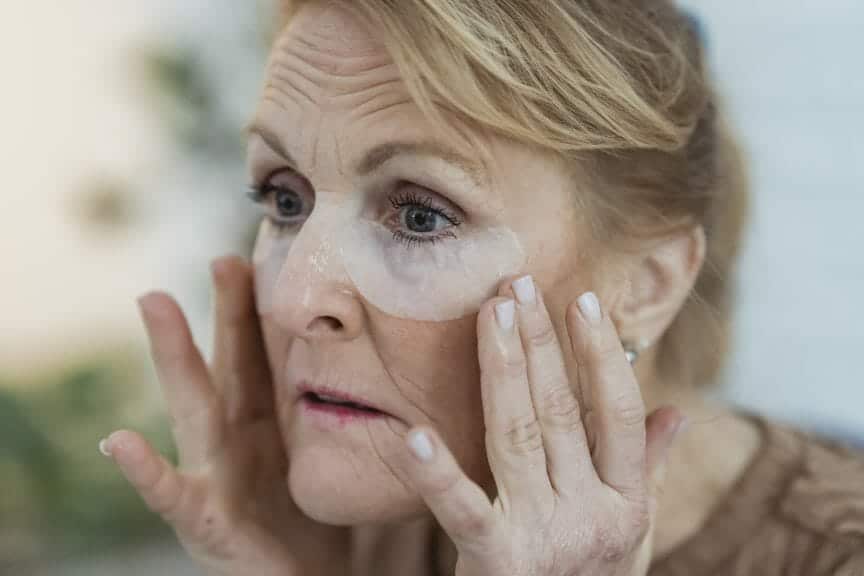
The notions of power and visibility are integral when women participate in anti-aging practices.
Society valorizes anti-aging efforts to a toxic extremity, especially for women.
In her book I Feel Bad About My Neck, And Other Thoughts On Being a Woman, Nora Ephron details the time and money that “maintaining” oneself as a woman requires to be socially accepted.
“Maintenance is what you do just so you can walk out the door knowing that if you go to the market and bump into the guy who once rejected you, you won’t have to hide behind a stack of canned food,” Ephron said in her book.
Instead, women can more confidently step out into the world. Ephron attributes this to feeling less awkward in social situations. However, this circumstance is also because of the purported security and stability tethered to “maintaining” youth. Our culture reinforces the notion that beauty is contingent on one’s youthfulness and equates that youth to an allusive sense of power.
The desire to appear fresh-faced is akin to why many women diet or partake in disordered eating. For example, in a 1998 study, researchers brought TVs to an island in Fiji, Viti Levu, that was previously devoid of television. They discovered that 50% of the girls who watched television at least three times a week were 50% more likely to perceive themselves as “fat” and 30% more likely to engage in dieting. The girls’ reasoning had nothing to do with beauty but from their dismay of not resembling the more slender girls who appeared on popular shows like “Beverly Hills 90210.”
Their succumbing to disordered eating aligns with the fallacy that being slim and having skin that bounces back grants women the power to ascend in a hierarchical system.
Despite the conflicting accounts that life experience often warrants credibility and respect, women’s deep-rooted concern that they will get thrown into an elephant graveyard and someone younger will eclipse them is not baseless.
Depictions of how age and appearance warrant women a modicum of power have long pervaded the media. In several cases, a woman’s husband dumps her for a younger model. In others, the female protagonist lands the coveted job position because of her looks.
The patriarchy portrays female youth and power as inextricably linked. Women are misled to believe that capitulating to the system’s credo affords value, even if they have to expend themselves.
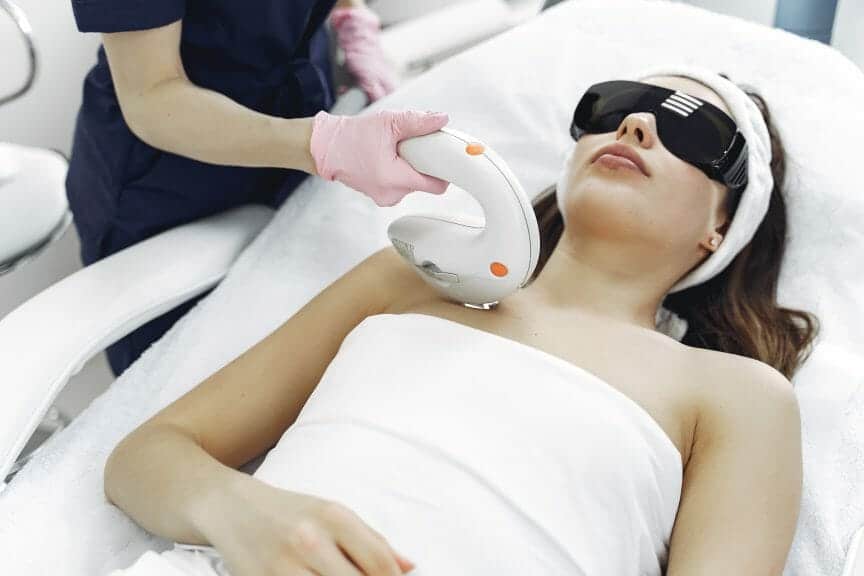
How it is affecting Gen-Z
The “age filter” exemplifies how social media magnifies how image-obsessed our society is. It also highlights how social media accelerates the effect beauty standards have on the younger generations.
The normalization of cosmetic surgery on social media apps has recently attracted younger consumers’ attention, as the Business of Fashion reported. Its ubiquitous media promotion persuaded many to test out procedures, including preventative measures for wrinkles.
The spike in fascination with anti-aging cosmetic procedures also corresponds with the popularization of the glazed-donut skin-type aesthetic, which centers around a glowy, smooth, and youthful complexion.
With pressure about what parts of themselves to hyper-value, young girls unconsciously surrender part of the process of individualization. Their sense of selfhood conspicuously revolves around the media’s depiction of the constraints of femininity.
It is no wonder why there is a depression epidemic among teenage girls. Many of them are confronted on a daily basis with patriarchal-infused algorithms that insinuate the lines of “proper womanhood.” They never had complete agency over their self-perception, as our culture dictates where a woman’s worth lies even before birth. Consequently, they’re often stripped of the opportunity to fully enjoy their youth, consumed by the big “what if.”
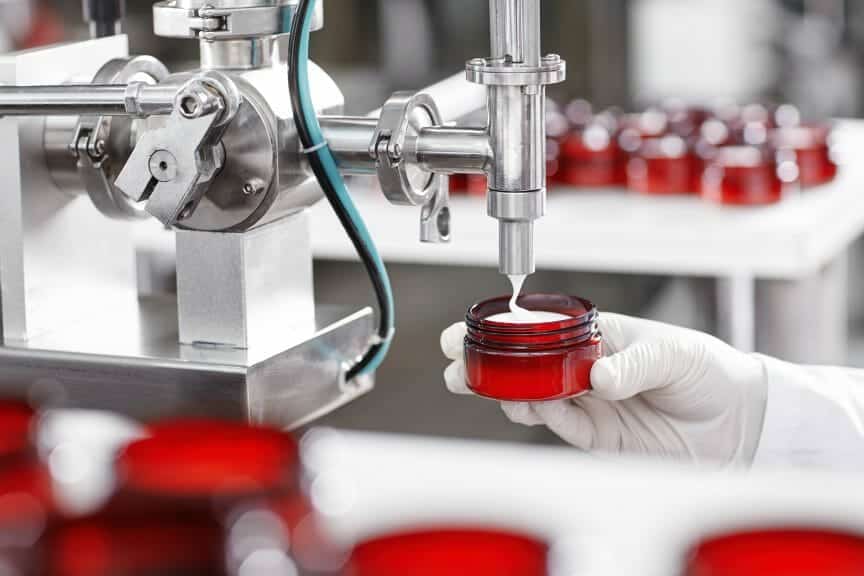
Women’s discontentment with themselves fuels the skin care industry.
The overall reaction to the filter and the filter itself yields insight into our cultural zeitgeist. Society still frames aging as something to be ridiculed and scorned at. The communal upheaval across the app is regressive for the anti-ageism movement. However, it is instrumental in the beauty industry, constituting a significant portion of the economy.
Some beauty brands and members of the beauty industry have tried to be more progressive by positioning themselves as “pro-aging.” For example, Allure prohibited the term “anti-aging” from its publication in 2017, resolving to encourage its readers to “grow into their own skin.”
However, as the Business of Fashion pointed out, the rebrand has been practically nonexistent. Despite being historically women-focused, the beauty industry has not exactly strained itself trying to uplift older women and devilify aging. Celebration or mere acceptance of aging has remained relatively stagnant in recent years. Sephora still has an “anti-aging” section on their website, and skincare companies still market their creams according to how well they can “firm” or “tighten” your skin.
Many young users who tried the “age filter” embarked on a fear-based mission to expand their skincare routine to prevent aging. (God forbid that a woman gives ammunition to the antiquated misogynistic tale that might “lose herself” as she ages.) The creation of the filter was purposeful – to garner mass traction on the app and benignly incite craze. However, in the process, it fueled the narrative that there is a singular beauty image that is youthful and requires expensive treatments and creams. At the same time, it hurts those who lack the financial resources to compete in a callously prejudiced system.
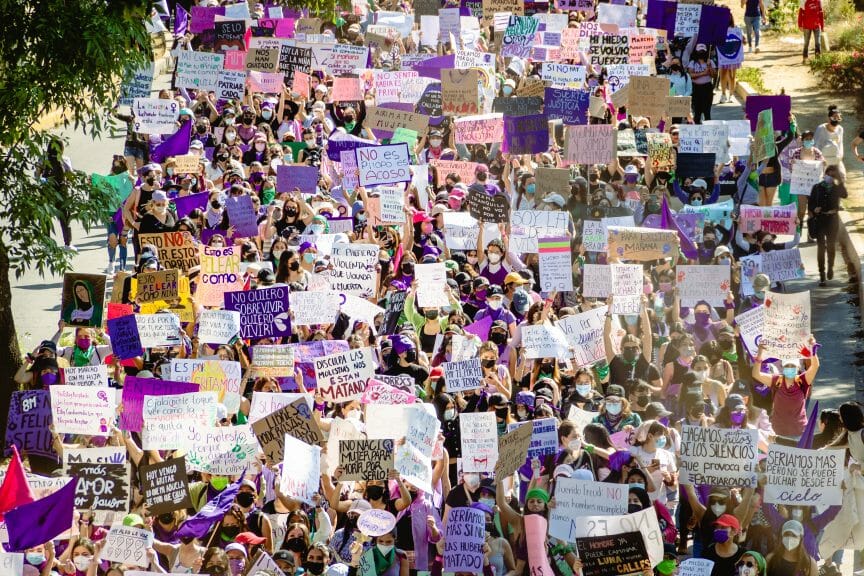
Reclaiming Female Beauty and Power
“It’s difficult to reverse the psychology around getting older, despite it being something every single human experiences,” the Business of Fashion reported.
Anti-aging stigma is an ingrained part of our culture. So, the blame can not only land on the beauty industry. As the Business of Fashion made clear, if the beauty industry essentially played Switzerland in its approach to the movement to destigmatize aging, it would lose substantial profit.
However, grasping the inevitability of aging is crucial for human liberation. For women, Applewhite believes that completely relinquishing oneself to the anti-aging industry without any cognizance of its inherent erroneous logic “sets [them] up to fail.”
“When women compete to “stay young,” we collude in our own disempowerment,” reported Applewhite in the New York Times.
Rewiring the idea of beauty and where we derive our power from is the key to progressing women’s empowerment. This means believing that beauty is personal to each individual instead of being engrossed in whether we may be relegated in our socioeconomic position for not subscribing to the belief system. Rather than resenting other women, find that there can be unparalleled power in rejecting the system that created these ideals. Think of aging not as a time where you crumble but to discover your identity and unearth your fire.


